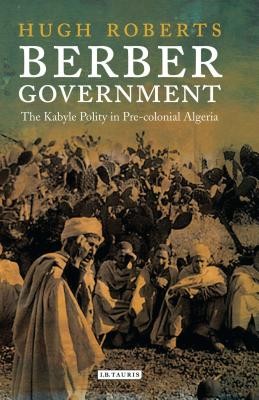
- We will send in 10–14 business days.
- Author: Hugh Roberts
- Publisher: CONTINNUUM 3PL
- Year: 2014
- Pages: 352
- ISBN-10: 1845112512
- ISBN-13: 9781845112516
- Format: 14.2 x 21.6 x 3.6 cm, kieti viršeliai
- Language: English
- SAVE -10% with code: EXTRA
Reviews
Description
The Berber identity movement in North Africa was pioneered by the Kabyles of Algeria. But a preoccupation with identity and language has obscured the fact that Kabyle dissidence has been rooted in democratic aspirations inspired by the political traditions of Kabylia itself, a Berber-speaking region in the north of Algeria. The political organisation of pre-colonial Kabylia, from which these traditions originate, was well-described by nineteenth-century French ethnographers. But their inability to explain it led to a trend amongst later theorists of Berber society, such as Ernest Gellner and Pierre Bourdieu, to dismiss Kabylia's political institutions, notably the jema'a (assembly or council), and to reduce Berber politics to a function of social structure and shared religion. In Berber Government, Hugh Roberts, a renowned expert on North Africa, uncovers and explores the remarkable logics of Kabyle political organisation. Combining political anthropology and political and social history in an interdisciplinary analysis, Roberts challenges the excessive emphasis on kinship and religion in the study of the Maghreb.
He instead explores the political structures and processes of the Kabyles, examining the organisation of the Kabyle polity and its intricate frameworks of law, political representation and self-government. Additionally, in a pioneering account of Kabylia's relations with the Ottoman Regency, he provides the first in-depth historical explanation of the genesis of the Kabyle polity as this existed at the moment of the French conquest of the region in 1857. In thus grounding the explanation of Kabyle political organisation in a resolutely historical analysis spanning the Ottoman era, Berber Government offers a radical alternative to previous paradigms and lays the foundation of new way of understanding the complex place and role of the Kabyles in Algerian political life from the pre-colonial era to the present day.
EXTRA 10 % discount with code: EXTRA
The promotion ends in 21d.19:55:03
The discount code is valid when purchasing from 10 €. Discounts do not stack.
- Author: Hugh Roberts
- Publisher: CONTINNUUM 3PL
- Year: 2014
- Pages: 352
- ISBN-10: 1845112512
- ISBN-13: 9781845112516
- Format: 14.2 x 21.6 x 3.6 cm, kieti viršeliai
- Language: English English
The Berber identity movement in North Africa was pioneered by the Kabyles of Algeria. But a preoccupation with identity and language has obscured the fact that Kabyle dissidence has been rooted in democratic aspirations inspired by the political traditions of Kabylia itself, a Berber-speaking region in the north of Algeria. The political organisation of pre-colonial Kabylia, from which these traditions originate, was well-described by nineteenth-century French ethnographers. But their inability to explain it led to a trend amongst later theorists of Berber society, such as Ernest Gellner and Pierre Bourdieu, to dismiss Kabylia's political institutions, notably the jema'a (assembly or council), and to reduce Berber politics to a function of social structure and shared religion. In Berber Government, Hugh Roberts, a renowned expert on North Africa, uncovers and explores the remarkable logics of Kabyle political organisation. Combining political anthropology and political and social history in an interdisciplinary analysis, Roberts challenges the excessive emphasis on kinship and religion in the study of the Maghreb.
He instead explores the political structures and processes of the Kabyles, examining the organisation of the Kabyle polity and its intricate frameworks of law, political representation and self-government. Additionally, in a pioneering account of Kabylia's relations with the Ottoman Regency, he provides the first in-depth historical explanation of the genesis of the Kabyle polity as this existed at the moment of the French conquest of the region in 1857. In thus grounding the explanation of Kabyle political organisation in a resolutely historical analysis spanning the Ottoman era, Berber Government offers a radical alternative to previous paradigms and lays the foundation of new way of understanding the complex place and role of the Kabyles in Algerian political life from the pre-colonial era to the present day.


Reviews